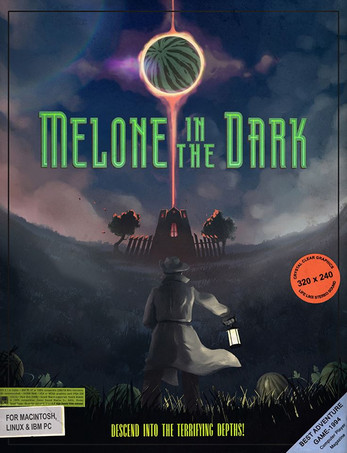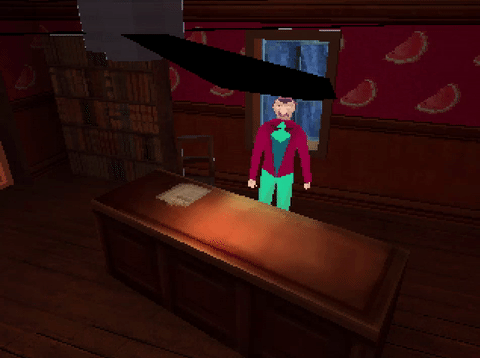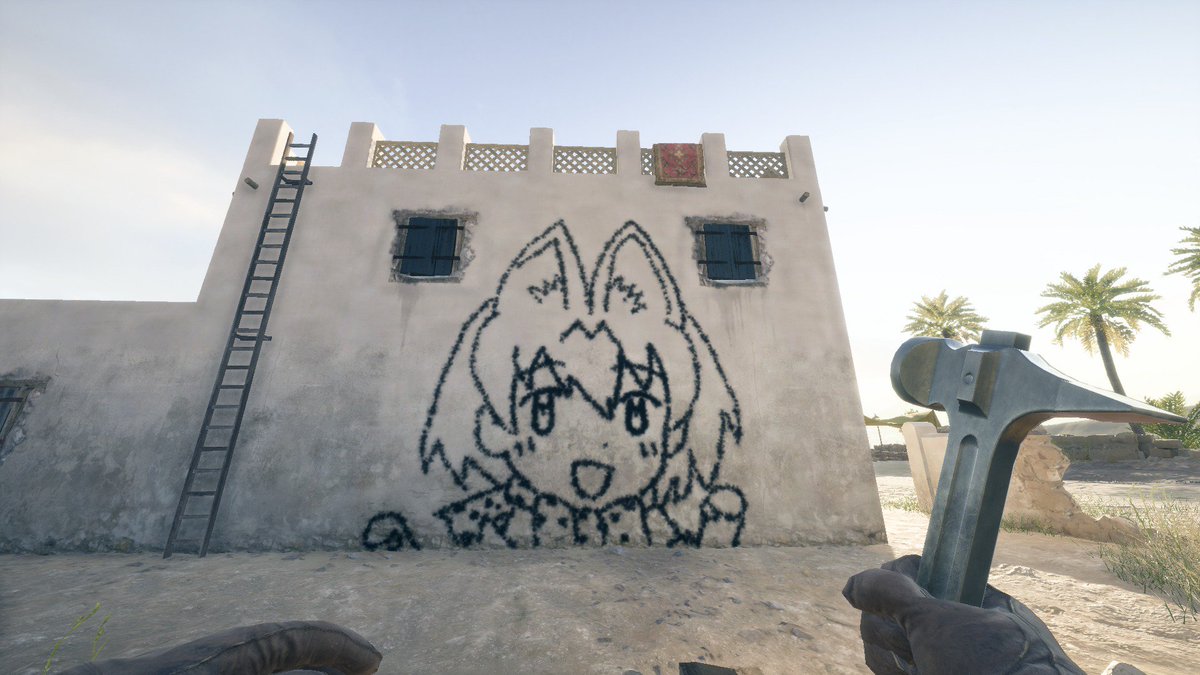-
Welcome to rpgcodex.net, a site dedicated to discussing computer based role-playing games in a free and open fashion. We're less strict than other forums, but please refer to the rules.
"This message is awaiting moderator approval": All new users must pass through our moderation queue before they will be able to post normally. Until your account has "passed" your posts will only be visible to yourself (and moderators) until they are approved. Give us a week to get around to approving / deleting / ignoring your mundane opinion on crap before hassling us about it. Once you have passed the moderation period (think of it as a test), you will be able to post normally, just like all the other retards.
You are using an out of date browser. It may not display this or other websites correctly.
You should upgrade or use an alternative browser.
You should upgrade or use an alternative browser.
NSFW Best Thread Ever [No SJW-related posts allowed]
- Thread starter Lord Chambers
- Start date
Astral Rag
Arcane
- Joined
- Feb 1, 2012
- Messages
- 7,771
- Joined
- May 13, 2009
- Messages
- 29,052
![The Year of Incline [2014] Codex 2014](/forums/smiles/campaign_tags/campaign_incline2014.png)


Astral Rag
Arcane
- Joined
- Feb 1, 2012
- Messages
- 7,771
This reminded me of a good old Winamp plugin:
https://winampheritage.com/visualization/visualize-her/146758
https://winampheritage.com/visualization/visualize-her/146758
TheHeroOfTime
Arcane
Dawkinsfan69
Dumbfuck!


EU4 LARP party:
LOL there's girls in that vid.
Like, who are they kidding?
Dawkinsfan69
Dumbfuck!


There's no way in hell that the strumming would actually register more than half the time on that touch screen
https://www.alphabetagamer.com/melone-in-the-dark-game-jam-build-download/
Melone in the Dark – Game Jam Build Download
Melone in the Dark, a spooky and very silly Alone in the Dark inspired adventure game made for the Melon Game Jam, has you playing a man who’s absolutely obsessed with watermelons.
Melone is a fancy individual who has one love in life; watermelons. He calls them ‘melons’ and talks about his love for them every chance he gets! His whole home is filled with melons; melon wall paper, paintings, color scheme. Every night he eats melon before bed, since it is his favorite thing. Melone feels that watermelons love him – just as much as he loves them. This all changes when he gets a watermelon from a strange lady in town. She curses the melon – saying that if he doesn’t know his melons, he will be doomed. Cue some very strange happenings in the Melone household!
Melone in the Dark is a very short game, but well worth checking out for it’s bizarre twists, stylish retro visuals and silly subject matter. A juicy little melon adventure well worth taking a bite out of.
https://mariuswinter.itch.io/mitd



I thought for sure that -100k was fake. Then I checked the actual score. 

TheHeroOfTime
Arcane
Some journos-youtubers-like are retweeting this. What a twist!
Astral Rag
Arcane
- Joined
- Feb 1, 2012
- Messages
- 7,771
"Mistakes happen," says Putin's spokesman after defense ministry caught passing off image from video game as "irrefutable evidence" the US is collaborating with ISIS. "I wouldn't exaggerate the significance"

Astral Rag
Arcane
- Joined
- Feb 1, 2012
- Messages
- 7,771
TheHeroOfTime
Arcane
Spanish humorist Chiquito de la calzada passed away a couple of days ago. Here I leave the best homage ever made to him: A Doom mod that switches the demon’s sounds effects with his jokes.
- Joined
- May 13, 2009
- Messages
- 29,052
![The Year of Incline [2014] Codex 2014](/forums/smiles/campaign_tags/campaign_incline2014.png)


Hey! This is like that glitch in Daley Thompson's Olympic Challenge where properly timed key presses allowed you to automatically win the Pole Vault, regardless of circumstances.
I set a new "world record" of 26.40 meters that way.

Thane Solus
Arcane
EU an US accusing Russia of fake news ... how...? What? Still didn't found "source" but i dont see it impossible, since "it seems" they apologized for this and "removed" the tweet.
Since when Eurogamer become another SJW garbage place? I havent visited that POS site in years or other "gaming" sites for that matter.
And if you think part of US (whatever is CIA, Pentagon or some inside groups) didnt support ISIS, you are living on Mars mate. How is the weather there? I mean its as clear as water, there is no conspiracy there...
Fucking people man....
Posting in General Gaming! GG....
TheHeroOfTime
Arcane
- Joined
- Jun 10, 2017
- Messages
- 1,467

Kojima retweeted this: https://www.muckrock.com/news/archives/2017/nov/15/cia-mgs/
Five times the CIA archives went full Kojima
From Soviet supersoldiers to shadowy networks, declassified history is often stranger than anything Snake’s encountered
At MuckRock, we run into a lot of weirdness poking around in the Central Intelligence Agency archives. So much weirdness, in fact, that we’ve coined what’s known as Best’s Law (named after its strongest proponent, Emma Best) that states “With sufficient research, history becomes indistinguishable from a Hideo Kojima game.” Today, we wanted to round up some of our favorite examples of Best’s Law in action.
1. A psychic bomb?!
Several intelligence agencies spent a not-inconsiderable chunk of the Cold War worried about Soviet psychics pulling a Red Alert 2 intro cinematic and mind controlling our generals. The National Security Agency, however, took those concerns straight into Best’s Law territory with a report on the possibility that with enough concentrated psychic energy, the Russkies could zap New York into another dimension.

And to think, all Psycho Mantis could do is make fun of what video games you play.
2. A Soviet superweapon?!
During a surveillance mission in Soviet airspace in the ’70s, a U-2 spy plane picked up a massive, mysterious object that was dubbed “the Caspian Sea Monster,” which turned out to be a prototype ekranoplan. If you’re not familiar, an ekranoplan is a hulking half-plane, half-boat that exploits an aerodynamic quirk called the ground effect to travel at hundreds of miles and hour.

Ostensibly for transport, the ekranoplans were nevertheless armed with nuclear weapons, potentially making them supersonic fortresses capable of striking anywhere on the American coastline. If that sentence rings awfully familiar, that’s because Naked Snake was sent in to blow up something surprisingly similar in Metal Gear Solid 3: Snake Eater.
3. A secret network of ex-spies?!
Friendly advice for that espionage thriller you’ve been working on: if the audience is already suspending disbelief that a bunch of retired intelligence officers would form a group with the sinister goals of spreading fear through manufactured conspiracies, don’t strain that credulity even further by giving them a comically-evil name. Somebody should have told that to reality, because not only does such a group exist and not only does it have ties to groups pushing everything from the Clinton kill list to a socialist world government, but they explicitly chose their name - the Common Interest Network - in part because the acronym sounds sounds like “sin.”

It’s Kojima’s world, we’re just living in it, not noticing that cardboard box creeping ever closer.
4. A global surveillance network powered by stolen software modified by a private army and tied to multiple mysterious murders?!
If you’ve never heard of the INSLAW case, the PROMIS scandal, or as it’s most dramatically known “The Octopus conspiracy”, then pour yourself a stiff one and get comfy - this one’s a doozy. Way too much to go into here, but this is a good place to start.
5. Colonel Volgin. No, really.
Colonel Volgin is the bad guy from MGS3. He’s a Soviet supersoldier who can shoot lightning out of his hands.
It’s never really explained why he can do this, it’s just a thing that everybody just sort of accepts. Like a lot of Kojima’s work, it comes off as a bit out of nowhere and more than a little bit silly … until you find out that “Soviet supersoldier who can shoot lightning out of his hands” was a genuine military concern during the Cold War.

This led Best to propose what we call Kojima’s Corollary: “With sufficient research, any wacky video game premise is indistinguishable from government paranoia.”










![Glory to Codexia! [2012] Codex 2012](/forums/smiles/campaign_tags/campaign_slushfund2012.png)





















